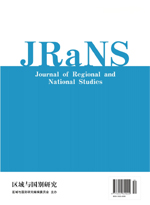Reconstruction of Power and Transformation of Governance: Modernization Exploration of the Strategy of “New Kazakhstan”
权力重构与治理转型:“新哈萨克斯坦”战略的现代化探索
- ACADEMIC FRONTIERS PUBLISHING GROUP(AFP)
- Journal of Regional and National Studies (JRNS)
- Vol.1 No.1
-
2025.0317 - 25 (9 pages)
-
DOI : 10.62989/jrns.2025.1.1.17
- 3

Under Nazarbayev's rule, Kazakhstan experienced a qualitative leap in overall national strength after thirty years of stable development. However, the implementation of a “super-presidential system,” where the president was essentially the embodiment of the state, led to increasing political corruption and a widening wealth gap, culminating in the “January Events” of early 2022. Since taking office, Tokayev has focused on reforming the country's political structure, promoting the “New Kazakhstan” strategy. This strategy emphasizes the separation of powers, party development, tribal consciousness, and local autonomy as key tasks of political reform, aiming to balance the focus between political and economic work on the path to modernization.
纳扎尔巴耶夫治下的哈萨克斯坦虽然在三十年平稳发展期后国家总体实力实现质的飞跃,但由于其所推行的“超级总统制”,总统堪称国家的化身,导致政治腐败与贫富差距愈演愈烈,于2022 年初激起了“一月事件”。托卡耶夫上台以来,将改革重点放在了国家政治结构的调整上,推行“新哈萨克斯坦“战略,以三权分立、政党建设、部落意识和地方自治为政治改革的重点任务,试图在现代化道路上调平政治与经济工作的重心倾斜问题。
1 “新哈萨克斯坦”战略的提出背景
2 “新哈萨克斯坦”战略的主要内容及其必要性
3 哈萨克斯坦现代化道路中的经济政治改革之辩
4 结语及启示
参考文献
(0)
(0)